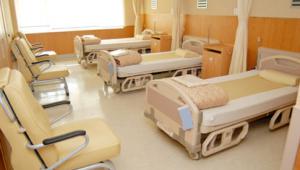14 April 2011
Health care providers and commissioners should be required to justify persistent and often inexplicable variations found in patient treatment, according to a leading think-tank.
Research by the King's Fund has discovered widespread disparities across England in patients’ chances of undergoing surgery for common medical conditions.
It said these variation rates should be published, with justifications, to allow for comparisons between the performance of both individual practitioners and between neighbouring trusts.
Its report, Variations in health care; the good, the bad and the inexplicable, said the disparities could not be explained by differing levels of need, and meant that while some patients did not receive necessary surgery, others underwent purposeless operations.
King’s Fund chief economist John Appleby said there were good reasons for some variations, but ‘unwarranted’ ones were ‘unfair to patients and inefficient for the NHS’.
He added: ‘Remedying this is urgent given the need to improve quality of care while the NHS grapples with the biggest financial challenge in its history.’
The report said patients should have greater involvement in decisions about their care, pointing out that those fully informed were often less likely to opt for costly surgery than those without this information.
Some variations would affect the NHS’s ability to find £20bn in productivity improvements by 2015, the report said.
One example was operations for varicose veins, which could be done in a day, or with a costly overnight hospital stay. Yet day surgery rates varied from 90% of cases to 30% between primary care trusts.
Variations in admissions for routine hip and knee replacements could differ fourfold between the highest and lowest ranking PCTs, and threefold for cataract replacements, the report said.
Researchers found patients from more deprived areas were less likely to have hip replacements than residents of more affluent areas, despite strong evidence for the effectiveness of this operation.


















